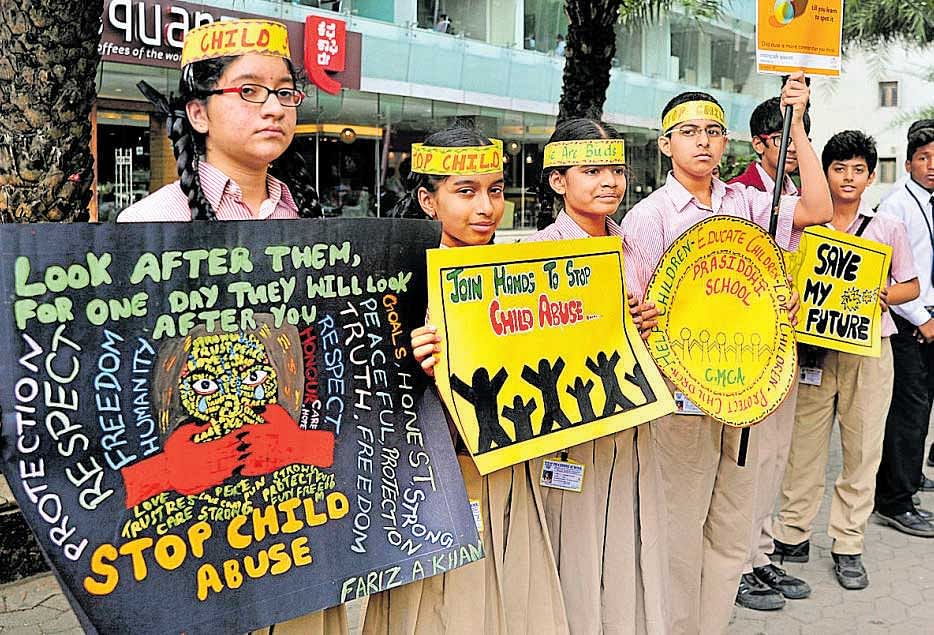Last Updated IST

A series of protests across the state against increase in incidents of child sex abuse in schools prompted the government to comeout with the child protection policy. DH FILE PHOTO
When the state Cabinet passed the Karnataka State Child Protection Policy in April 2016, it was appreciated as the first attempt of its kind in the country to create a comprehensive child safety policy.
However, rollout of the policy has been slow. The Department of Women and Child Development (DWCD) is the nodal agency for its implementation and is supposed to coordinate with other departments, such as health, labour, police, education and law.
“Right now, the education department is our priority since it is a key agency in child safety. We will soon begin training for senior officers in the department. These master resource persons will train others at the district level and it will trickle down in this manner,” said a child safety expert, who works closely with DWCD for implementation of the policy.
The schools are supposed to have a customised policy, a child protection officer, child protection committee and reporting mechanisms in place. The department is considering the use of video conferencing for speedy implementation.
As the policy applies to all departments which interact with children, the DWCD is to train stakeholders in all these departments to sensitise officials. “We are yet to prepare the training modules. Once we prepare them we will start the training. We are expecting the budget for this work to be released soon,” a senior official of the DWCD said.
At present, operational guidelines on how to implement the policy exist only for educational institutions. The department has framed institution-specific guidelines for anganwadis, child care homes and hostels. “In hostels and child care institutions where children reside, different measures are required. We have framed guidelines and have submitted them to an expert committee to be examined,” an official said. The officials say that they require more manpower to implement and monitor the policy.
However, rollout of the policy has been slow. The Department of Women and Child Development (DWCD) is the nodal agency for its implementation and is supposed to coordinate with other departments, such as health, labour, police, education and law.
“Right now, the education department is our priority since it is a key agency in child safety. We will soon begin training for senior officers in the department. These master resource persons will train others at the district level and it will trickle down in this manner,” said a child safety expert, who works closely with DWCD for implementation of the policy.
The schools are supposed to have a customised policy, a child protection officer, child protection committee and reporting mechanisms in place. The department is considering the use of video conferencing for speedy implementation.
As the policy applies to all departments which interact with children, the DWCD is to train stakeholders in all these departments to sensitise officials. “We are yet to prepare the training modules. Once we prepare them we will start the training. We are expecting the budget for this work to be released soon,” a senior official of the DWCD said.
At present, operational guidelines on how to implement the policy exist only for educational institutions. The department has framed institution-specific guidelines for anganwadis, child care homes and hostels. “In hostels and child care institutions where children reside, different measures are required. We have framed guidelines and have submitted them to an expert committee to be examined,” an official said. The officials say that they require more manpower to implement and monitor the policy.
Deccan Herald is on WhatsApp Channels| Join now for Breaking News & Editor's Picks